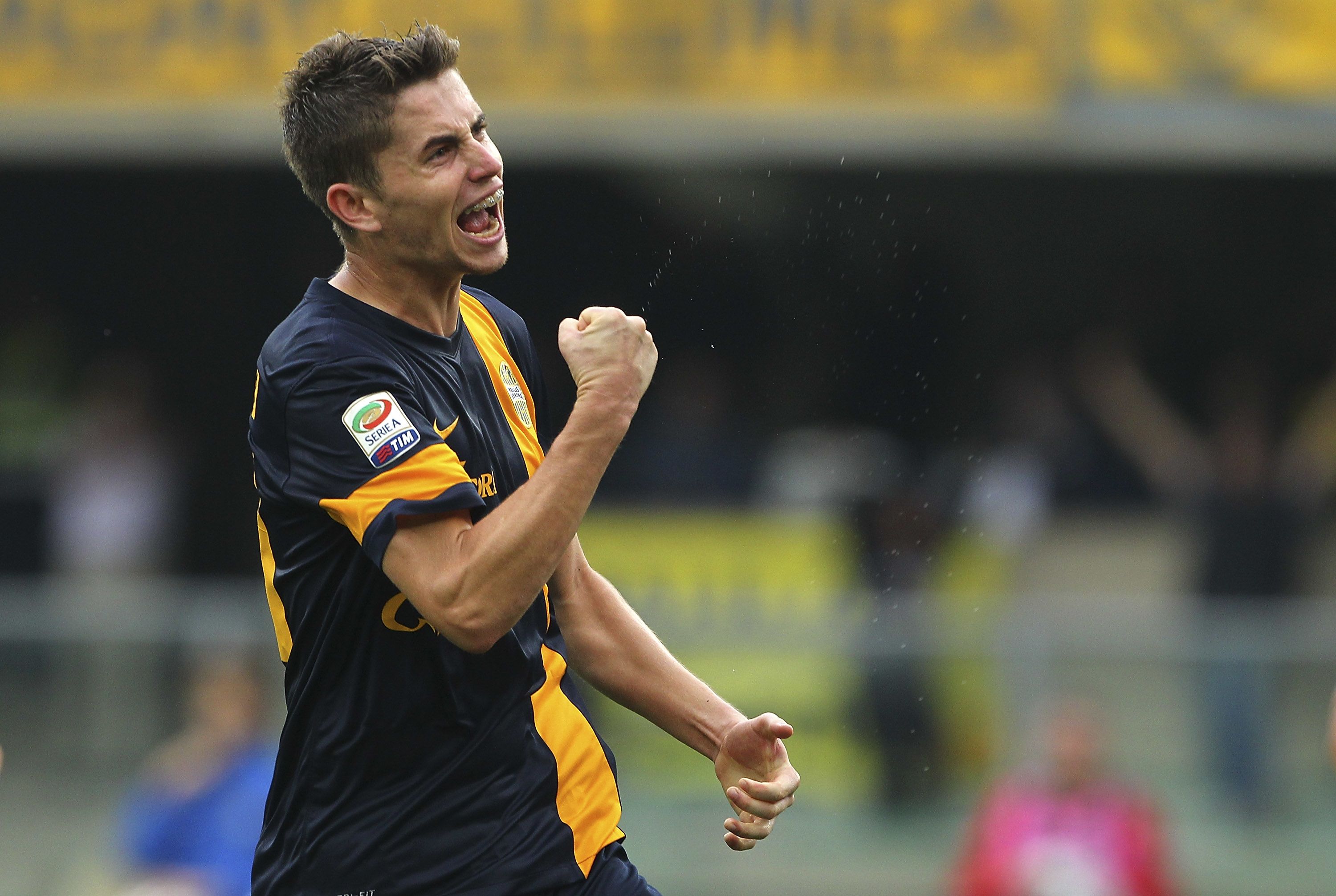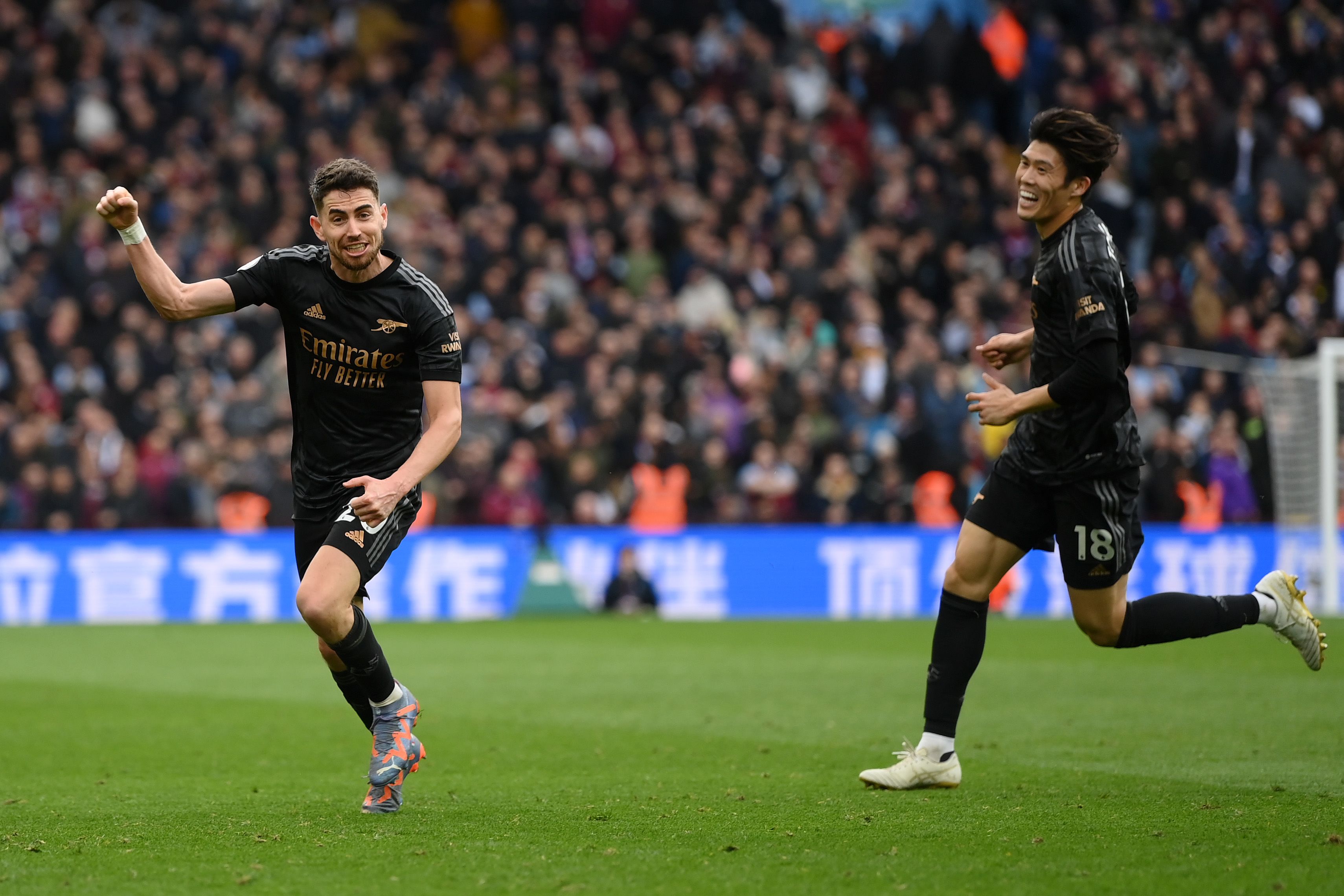jorginho: constant evolution
Our midfielder is already thinking about what life after his playing days are over could look like
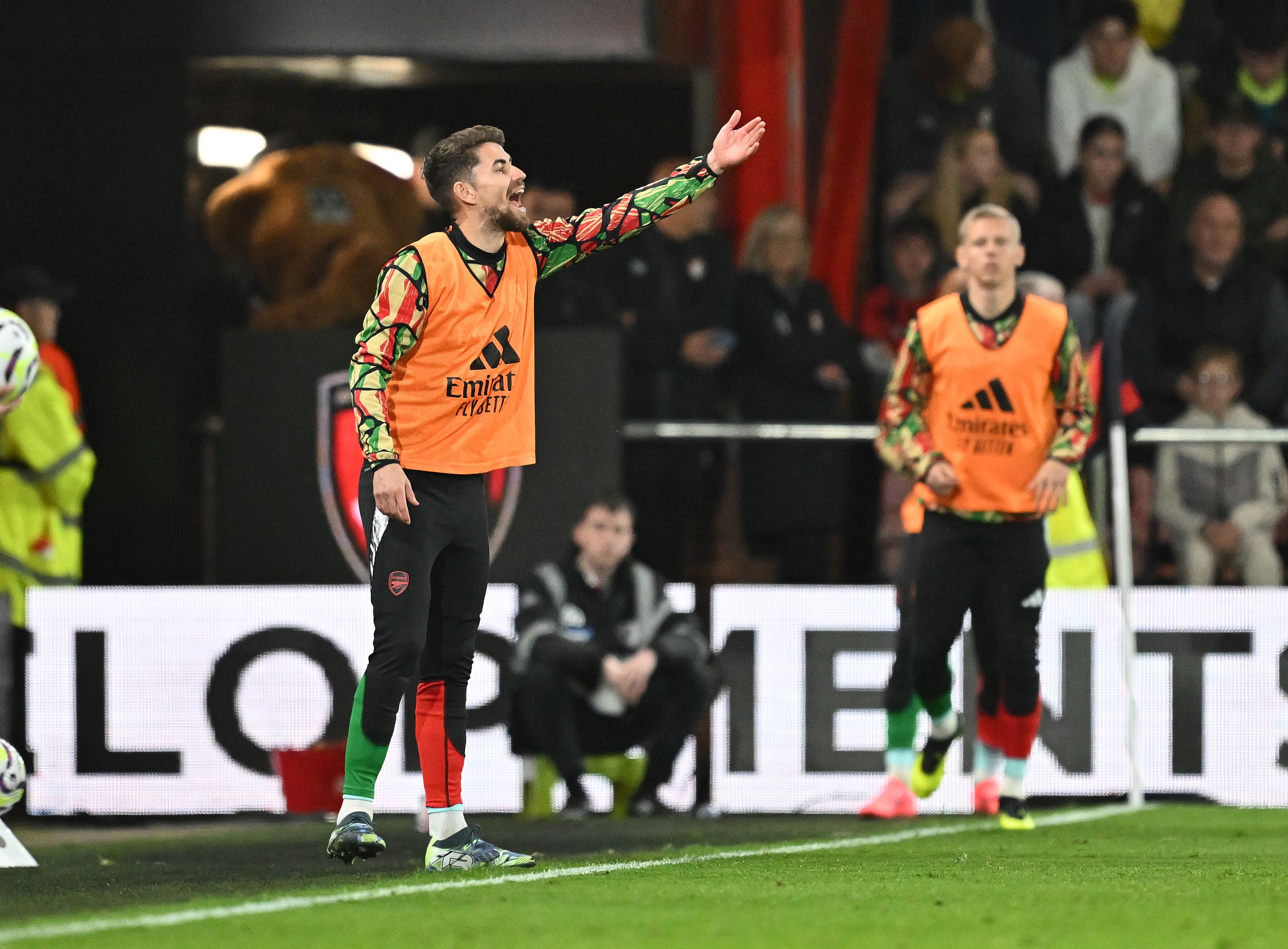

A common theme running through the interviews already published in this season’s matchday programme is that most players agree Jorginho is very likely to go into management when his playing days are over.
And when you see how animated the midfielder is on the touchlines while warming up as a substitute, some have even suggested that he’s slipping into
the role already!
Jorginho himself confirms he has developed a passion for coaching lately, and is open to the idea of pursuing it as a career when the time comes. But he explains that, until surprisingly recently, he wasn’t even contemplating it.
“You know, it’s funny,” he says. “Everybody always told me, since I was about 22 or 23, ‘You’re going to be a coach one day!’ I guess I always had my arms up when I’m playing, trying to help. But I always said, ‘No, I don’t want to do that, I don’t want to be a coach when I finish. It takes too much time.’
“I was thinking about staying in football, but not as a coach, because of the commitment basically, and the time. So I was set in my mind – no! I thought I would become a scout or an agent – something that helped young players get an opportunity.
“But then I came to Arsenal and they said, ‘Do you want to do your badges?’ I was like, I’m not sure, but why not. Could be worth having in the pocket one day.
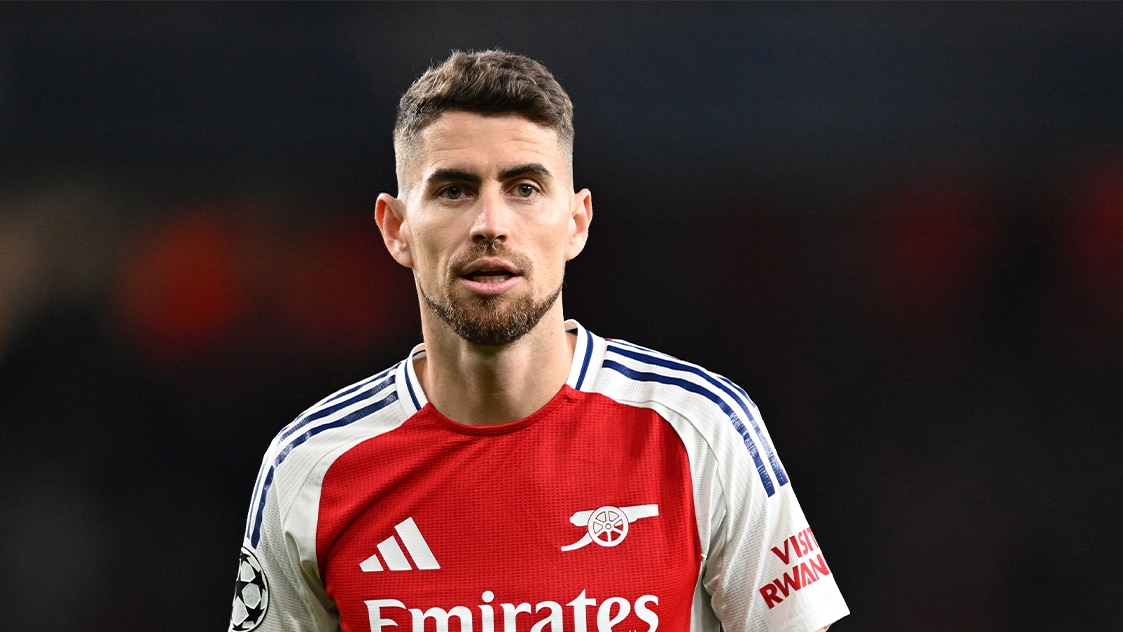
“Then I did my first session – that was my mistake – because I loved it! That moment changed my mind, and now maybe it will happen. I did the B Licence, working at Hale End, and now I’m going to do the A Licence, definitely. I didn’t go looking for it, it just happened, and sometimes that’s what life is and maybe it was meant to be.
“I loved being on the pitch coaching, seeing the players, trying to see them play the way I was asking them. The tactics side of it and everything, it drives me mad!”
Jorginho’s enthusiasm for coaching is clear when speaking to him, and it’s obvious he has spent a lot of time over the past couple of years developing his ideas. So does he have a clear picture of what his footballing philosophy would be if he was a head coach?
“Of course,” he says. “I think I’d try to go for what I am as a player as well, trying to control games. But of course it will depend also where I was working and what I’d have available. I would try to adapt to what I have, and also the age of the team as well. If it’s an academy team for example, I’d look more to help them grow as players and human beings, rather than the tactics side of it.”
Now 32, Jorginho hopes he still has plenty of seasons left in him as a player before he potentially moves into coaching. But if and when he does, his playing career provides plenty of clues as to what sort of coach he would be.
Born in Brazil, but an Italy international for the past eight years, he has played all his professional football in Italy and England. He has won trophies in both countries, as well as lifting the European Championship trophy with the Azzurri in 2021, and was voted third in the Ballon d’Or that year.
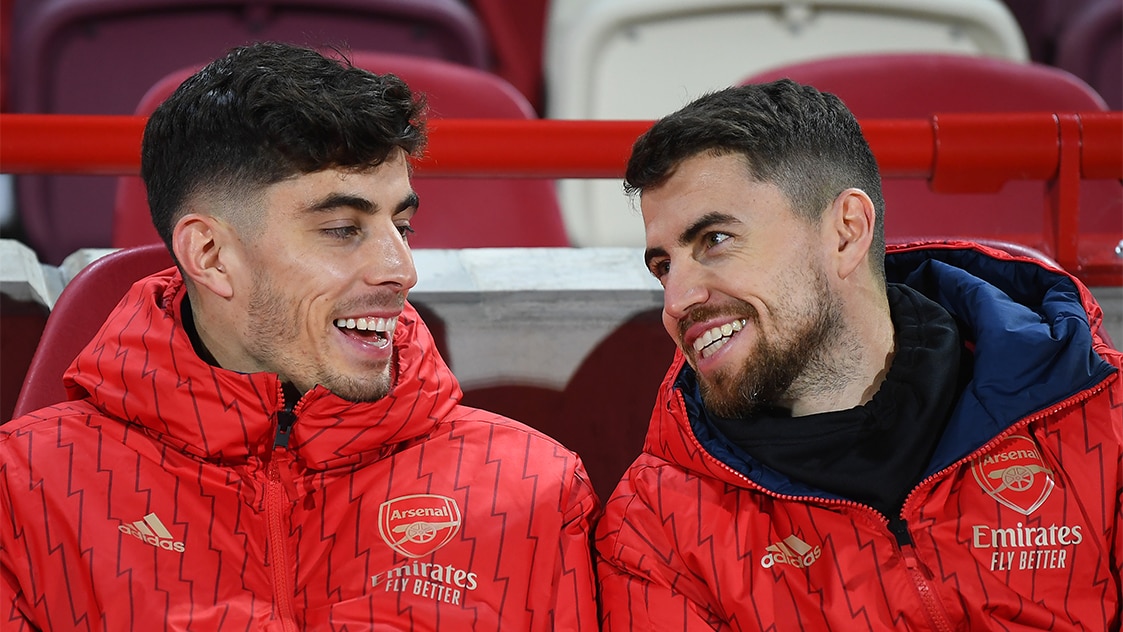
His formative years were spent in Brazil, though, in the coastal town of Imbituba, where he lived until he was 15.
The lessons he learned back then, he says, have stuck with him throughout his career. “When I started really young in Brazil, it was a lot about technique and how important it is to focus on the basic stuff. So things like making a pass with the right weight, and technical things. For me that was a big part when I was growing up, learning the techniques, and I still carry them with me. Learning how important it is to make a pass, how to control the ball with the right foot and in the right position.”
So what was it about the young Jorginho that led to his peers believing he had a future in coaching?
“I always loved learning, and throughout my career and my life I’ve always wanted to learn and develop. I still do. I looked at all the players, all the big players when I was starting out. I would look at them, watch them closely and also remember what the coaches were telling me to do. So then when I practised I was thinking about what I had seen from the big players, and then I would try to go my own way, but by learning from them.”
“I was quite reserved, but I’d always pay a lot of attention,” he adds. “I watched very closely and when someone spoke to me I’d always listen carefully. I was never thinking that my way was the best way, I was always listening. I still listen today and I still try to learn, because I think it is really important.
“Of course I love playing the games more, but I enjoy every single day of training. At the end of the day, this is our dream. It sounds like a cliche, but it’s true. We live our dream, and that’s why I try to enjoy every single day, every single practice. I love learning during training. I get upset with myself when I have a bad day training, because I always try to be my best. That’s how I do it.”
That thirst for learning extends off the pitch as well. “Of course I’m more passionate about football, but I love learning in general. For example, I love languages, so that’s why I speak four languages. I learned Spanish without even going to one lesson. I learned it from just listening and being in football. So I think I could say I’m a guy who likes to listen and pay a lot of attention and try to learn and improve a lot. I learned sign language too. I need to do more on that to be fair, but that was something I wanted to do as well, because I really want to learn.”
“i watch every game afterwards, to see what i did well, what i didn't do as well”
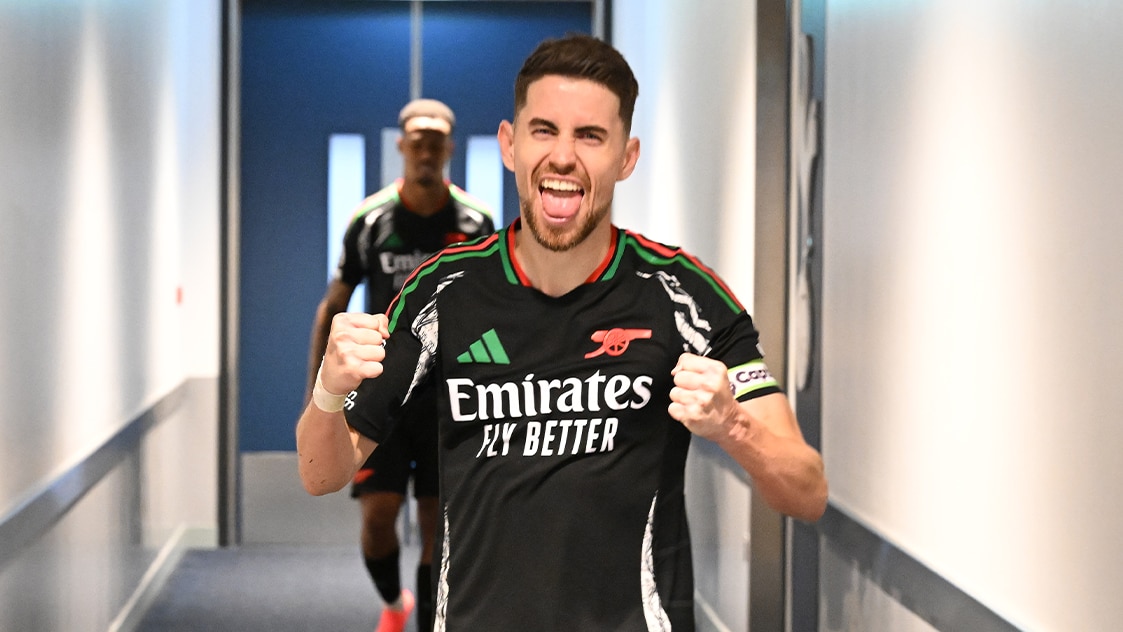
And there is always more to learn. Perhaps already with an eye on coaching, Jorginho says he is deeply immersed in the analytical side of the game. Again, that’s a more recent development.
“Training is very different now to when I started,” he says. “In football there is a constant evolution. It’s always changing, and it’s going to keep changing over time, for sure. Now there’s a lot more information, a lot more things are involved, like nutrition, more specific work in the gym, analysis after the game. For example I watch every game I play afterwards, to see what I did well, what I didn’t do as well. I do it individually, not at training. I just watch it myself. I like to see what was good so I can repeat it, and what wasn’t good that I can improve.
“I’ve been doing this for about six or seven years. And on top of that, because I love the game and I think I can contribute to the team in other ways as well, I watch the team in general. If I see something, then I can make some comments or give some advice to the players in some movements. It’s just a conversation to bring it up to try to find solutions, you know? Then to try and get better.”
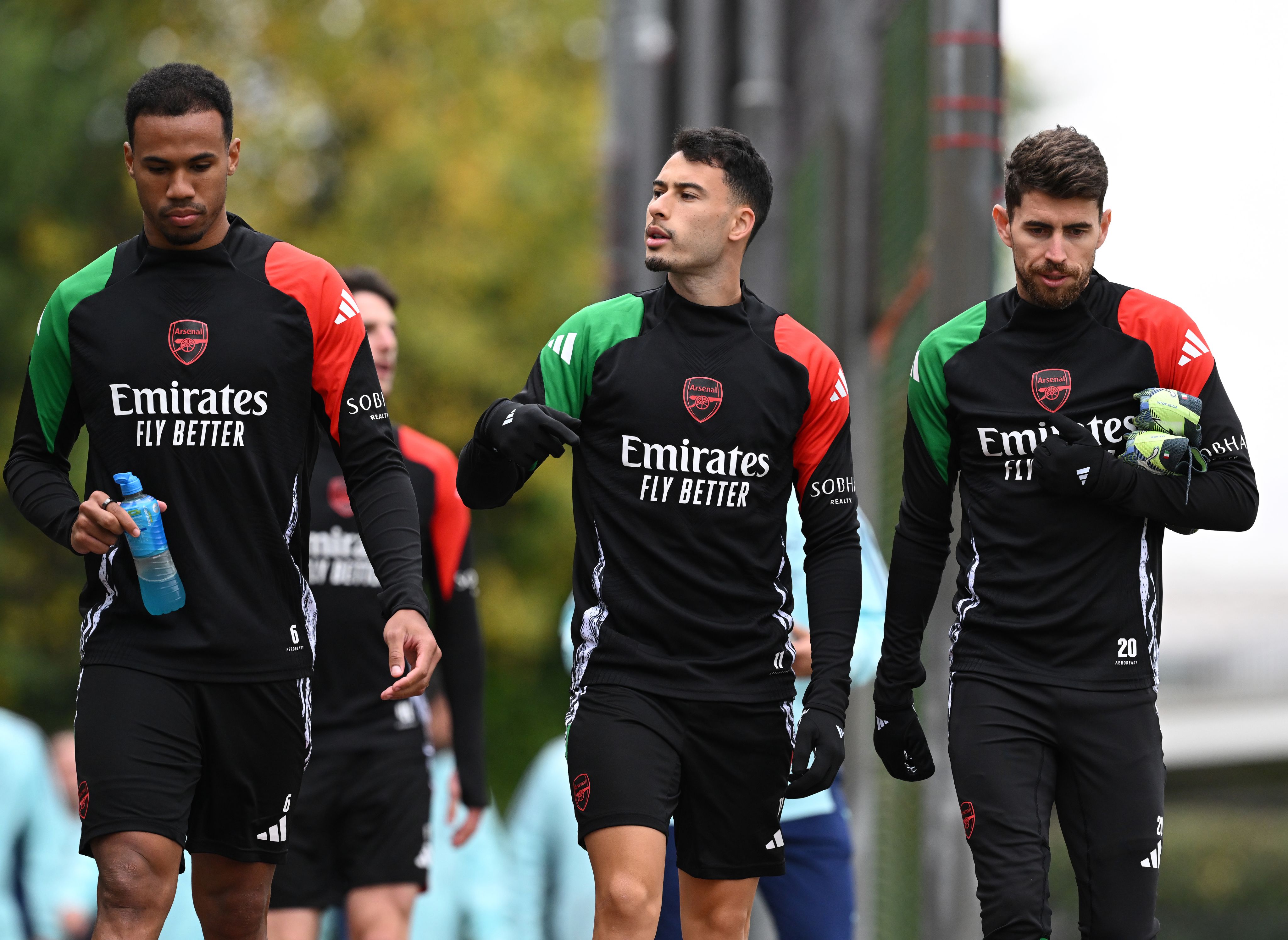
A lot of what Jorginho says has echoes of Mikel Arteta’s own journey into coaching, so has the midfielder sat down with him to discuss what the role entails?
“We spoke a little bit here and there and made a few jokes, but no, we’ve not sat down properly and gone into details,” he says. “I don’t think it’s the right time now, but maybe that will happen in the future.
“But I can see what a big commitment the job is. It’s 100 per cent bigger than when I started, because there’s so much more involved with it. It’s not just, ‘Let’s do training and go home.’ Now it takes a lot more and maybe by the time I’ve finished playing, and when I start coaching, it’s going to be even more, because as I said, football is always in an evolution. Maybe things will change even more and you need to be ready for that.”
Which is why he’s starting that work now. So has Jorginho found himself beginning to think like a coach when he’s watching games, and even while on the pitch himself?
“I don’t have time for that when I’m playing,” he smiles, “but if I’m not playing, then yes, of course. I do try to analyse the game a little bit, in a bigger picture sense. Looking at what both teams are doing, or what individual players are doing.
“I love the analysis side. I speak quite a lot with the coaches, with the analysts too, and I always try to give my feedback, because I think it’s important for them as well to see our point of view as players. I think it’s always a win-win because hopefully my feedback helps them, and then the information they give back helps me to improve.”
Jorginho finishes by reiterating that he plans to have plenty more seasons as a player first, though, and has only taken very tentative first steps into coaching so far.
“I worked with the academy when I was doing my badges, and then I did some just for fun with friends, when they have had games. But that might have been a bit more than just fun, because I’m so competitive! At times I was like, ‘Come on man!’
“And soon I’m actually going to my daughter’s school to do a lesson there for them. They have parents who go in and tell them about their job, and they do football at her school so the teachers said to me, ‘Why don’t you come in?’ So now I need to prepare a session for them!
“That should be fun for sure, because I think it’s important you develop a part of your coaching where it doesn’t matter who you work with, where the important thing is to get the message across and communicate.
“You need to learn how to transmit that and give what they need as well. Not just what you want, but what they need.”
And it would be no surprise at all if, in a few years’ time, those school kids were able to tell everybody about the day they were taught by Arsenal midfielder turned successful coach Jorginho.
